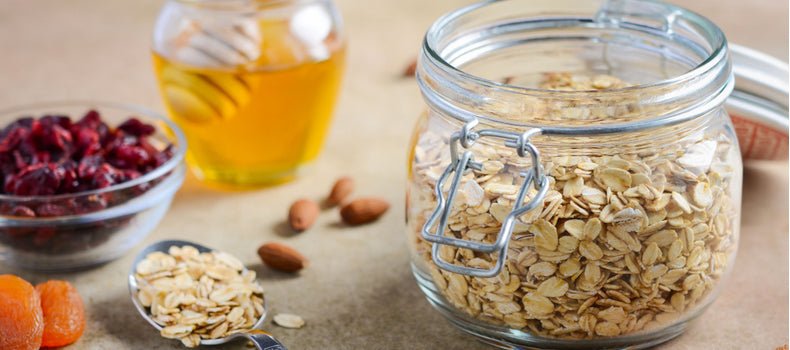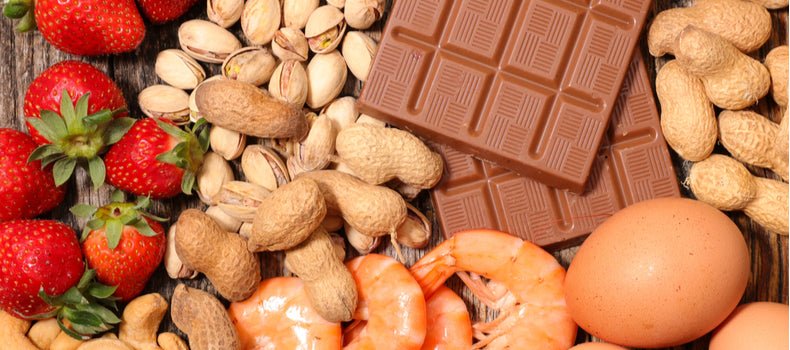- Blotchy skin, a rash or eczema
- A runny nose
- Sneezing
- Itchy or watery eyes
- Irritation in the throat
- Stomach pains, cramps or bloating
- Diarrhea
- Feeling sick
Most of these reactions occur soon after eating, but they are sometimes delayed for hours, making it harder for sufferers to establish which foods are causing them problems. As with most allergies, in rarer instances sufferers may experience more severe symptoms. These might include wheezing or disturbed breathing, a sudden drop in blood pressure, swelling of the lips or throat, dizziness or chest pain. These could be signs the person is experiencing anaphylactic shock, a potentially life-threatening condition which requires speedy medical intervention. An allergy to oats should not be confused with an intolerance. The latter involves the digestive system, while allergies are triggered by the immune system reacting to a particular food or food component as though it were a pathogen. In the case of oats, the culprit is usually a protein called avenin. This has similar properties to the better known wheat protein, gluten. Oat dust can even be a dermal irritant; it is more than twice as likely as wheat dust to trigger allergic reactions in sensitive individuals who come into contact with the substance during harvesting or food processing. But before we consider the cause of oat allergies in more detail, let’s answer a more fundamental question.
What actually are oats?
Oats - avena sativa - are a cereal grain: that is to say, a cultivated grass grown as a food source, like barley, maize or wheat. The cultivation of oats in the Fertile Crescent predates recorded history. Historians believe their wild ancestor originally grew as a weed alongside already cultivated crops, and neolithic farmers eventually noticed and took an interest. Oats are not as central to the modern western diet as wheat, but they have gained a reputation for being nutritious and healthy, and you will find no shortage of foods containing oats on supermarket shelves. Examples include:- Porridge
- Muesli, granola and similar breakfast cereals
- Granola bars and similar ‘healthy’ snack bars
- Cookies, biscuits and flapjacks made using oat flour
- Oat bran
- Oat milk
- Oat cakes
- Oat bread



